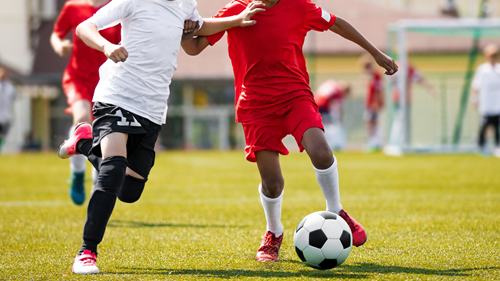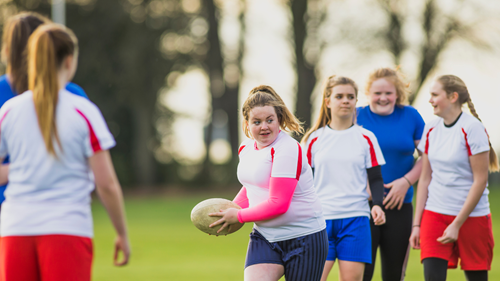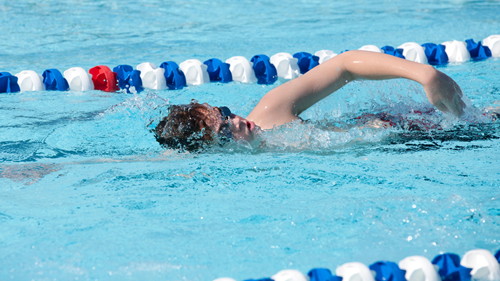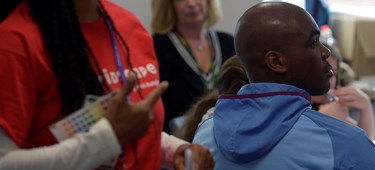Bullying in sports clubs
Bullying behaviour can happen anywhere - and that includes in sports clubs.
How might children experience bullying in sports clubs?
Bullying may happen during training, at events, in competitions, and online.
Children may experience bullying from other children, or from coaches, staff and volunteers, or even from other parents and carers. Research suggests that emotional abuse in sport can be a common experience of children and young people - and that's not acceptable.

Types of bullying behaviour that children might experience in sports clubs:
- Name-calling
- Hurtful and offensive comments
- Being shouted at in an aggressive way
- Abuse from spectators
- Physical abuse
- Sexual harassment
- Being deliberately embarrassed in front of others
- Being forced to continue even if you are hurt or in pain
- Online bullying and abuse
Some sports clubs might also have harmful 'hazing' rituals (a hazing ritual is when you have to do something difficult, painful, or embarrassing in order to be accepted in a club or a team).
Sports organisations have a moral, ethical and legal duty to protect children’s health and wellbeing in sport.

What can I do if my child is being bullied in a sports club?
There are many different types of sports clubs. The NSPCC describes a 'safer sports club' as a club that has:
- A safeguarding policy
- A welfare/ safeguarding officer
- Procedures for dealing with complaints and concerns
- Your consent for your child to take part
- Clear channels for communication
- Written standards of good practice for coaches and volunteers
- Safer recruitment practices
- Safeguarding training for staff
If you have concerns about your child or other children in the club, find out whether your club has a welfare or safeguarding officer that you can talk to, and ask to see a copy of the safeguarding policy. Some sports will be part of a bigger organisation that may have their own reporting routes and helplines if you are worried about safeguarding issues within the club. Some examples can be found below:
British Gymnastics Safeguarding (british-gymnastics.org)
England Netball England Netball | Reporting a Safeguarding Concern
The Football Association The FA Reporting and Concern
England Cricket Board ECB.co.uk - About
If your child has been seriously harmed, or is as at risk of serious harm, you can contact your local children's services team and/ or the police. You can also contact the NSPCC Helpline 0800 800 5000.
If you have more low-level concerns that would be helpful to talk through, contact the Kidscape Parent Advice Line.

What other support is out there?
The NSPCC Child Protection in Sports Unit celebrate Parents in Sport week each October and their website has a number of helpful resources for parents of children in sports including an animation for parents on what abuse might look like in sport, and an interactive e-learning course for parents on how to keep children safe.
Kidscape can offer bespoke training to sports clubs that want to improve their anti-bullying policy and practice. For more details, email training@kidscape.org.uk.
ZAP workshops for children impacted by bullying (available online and in the community)
ZAP workshops bring together children facing a similar situation and teach a range of tools to increase assertiveness, build confidence and help manage bullying situations.



